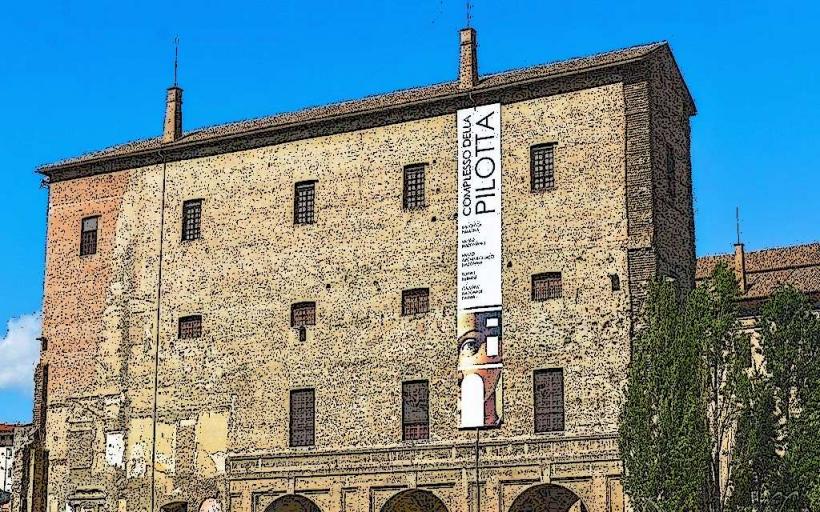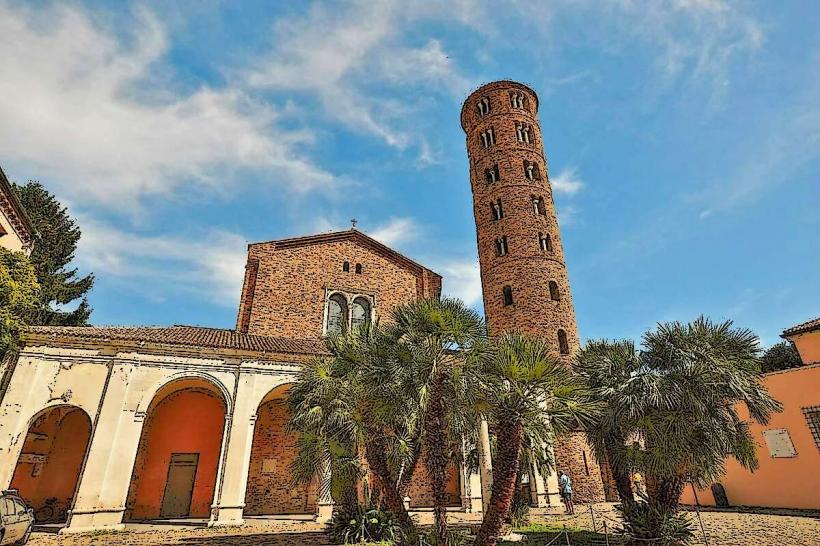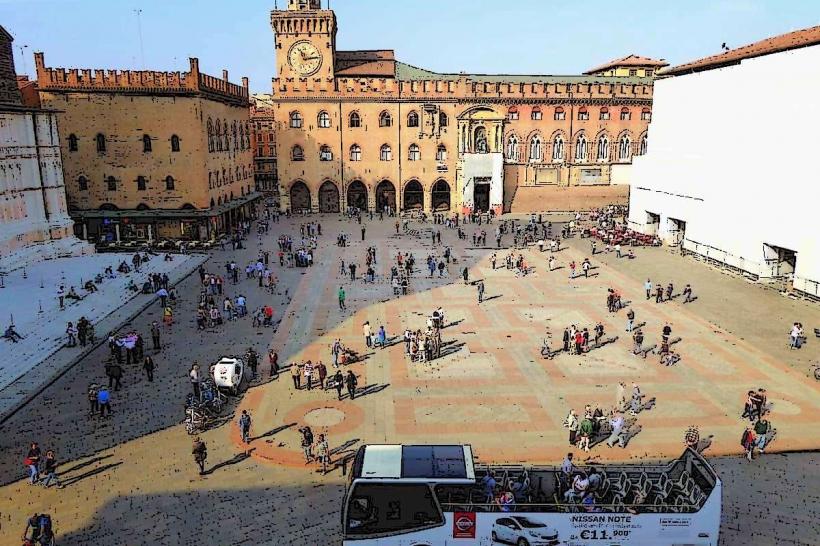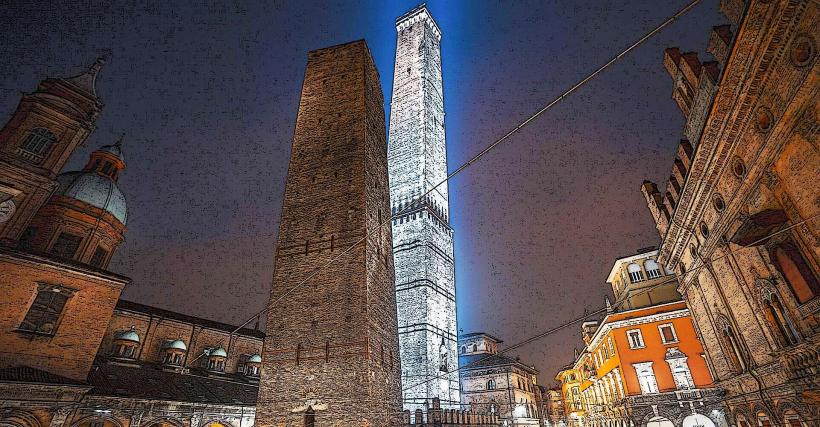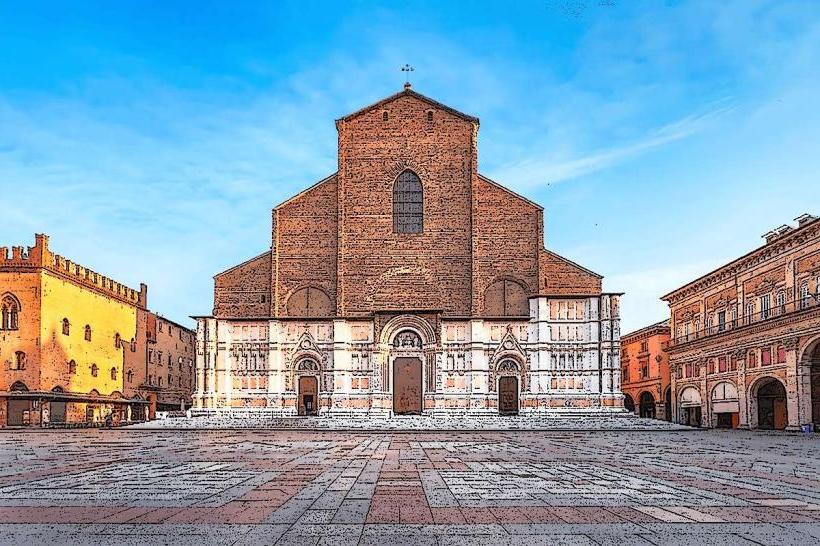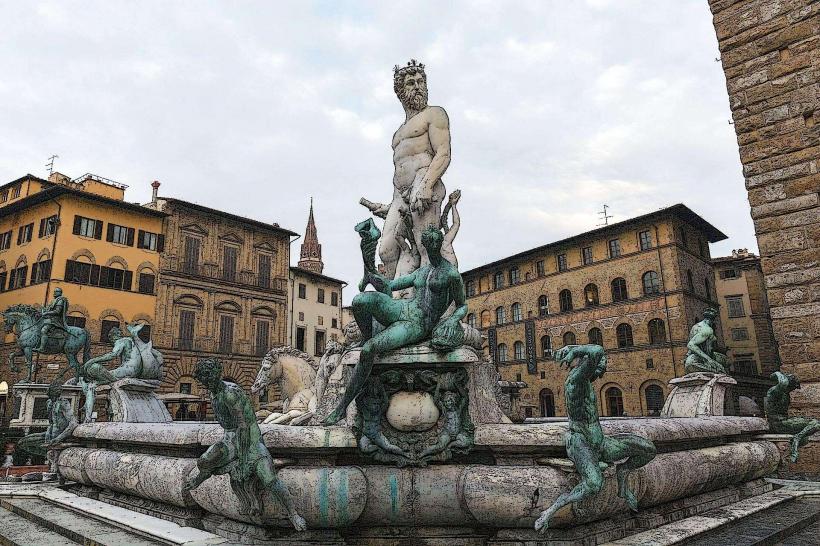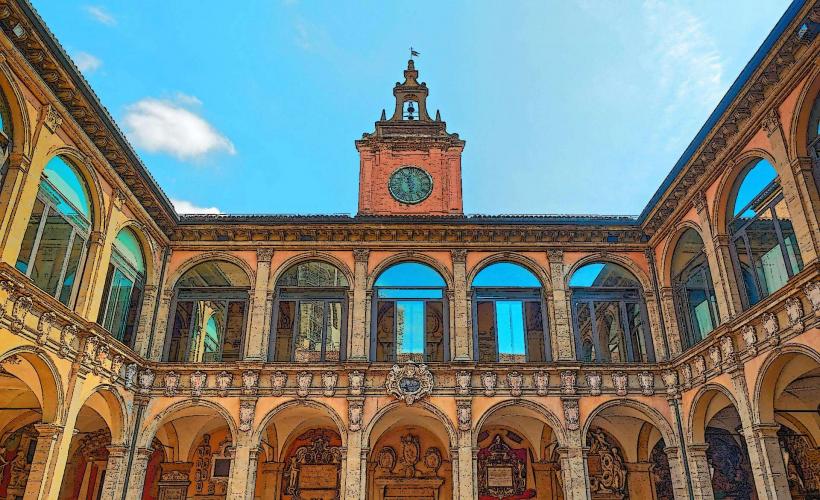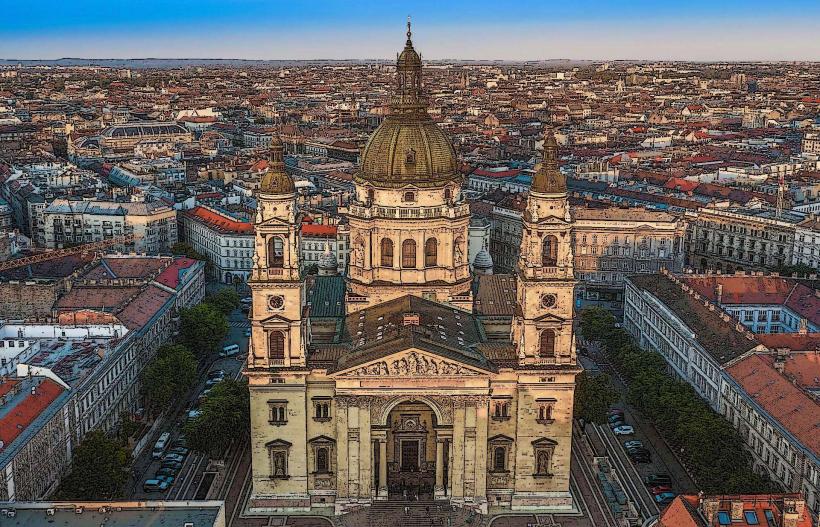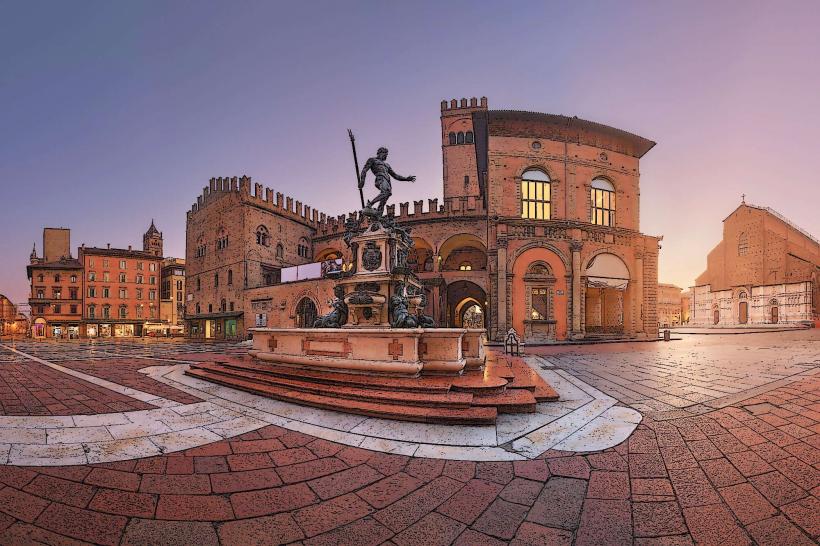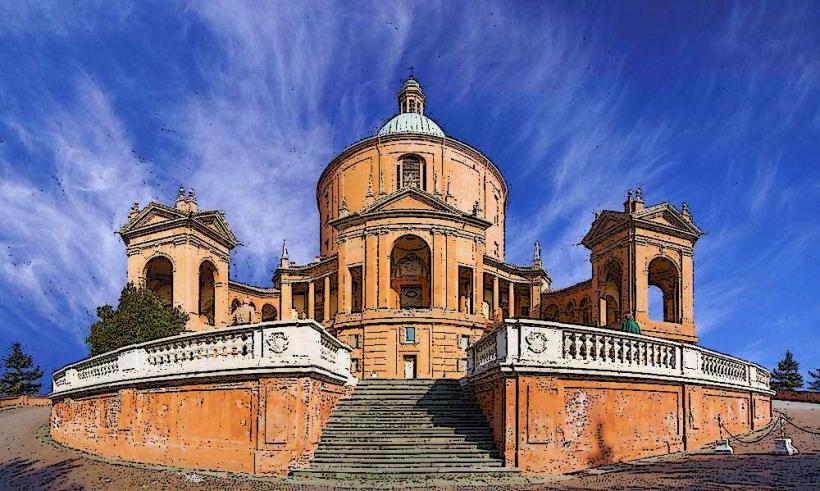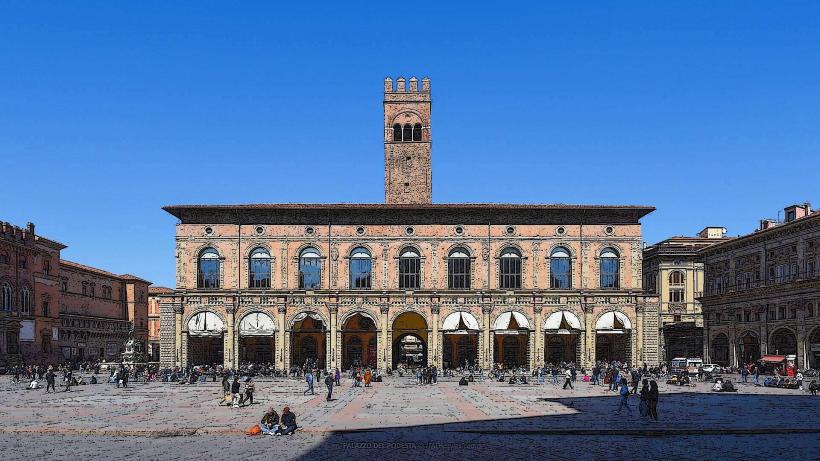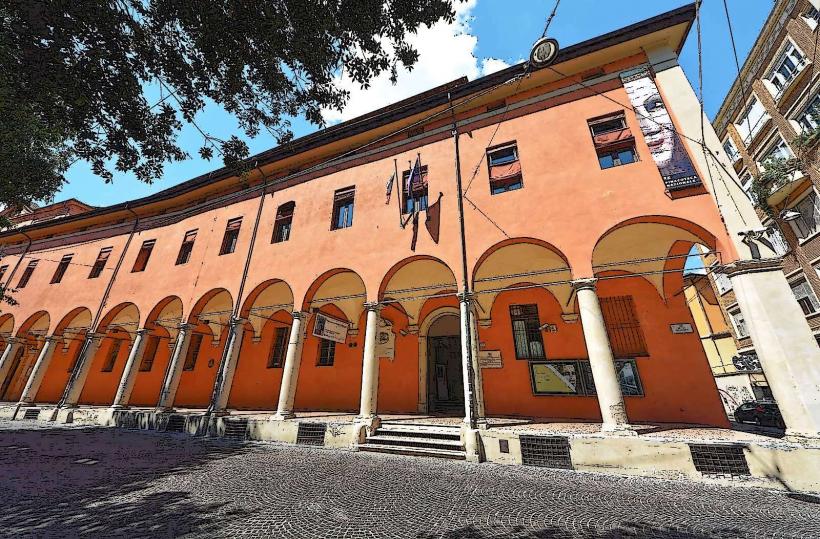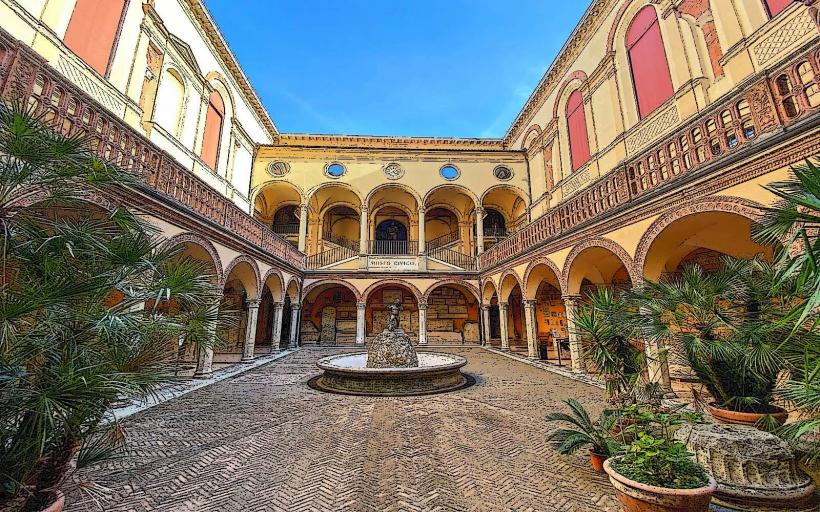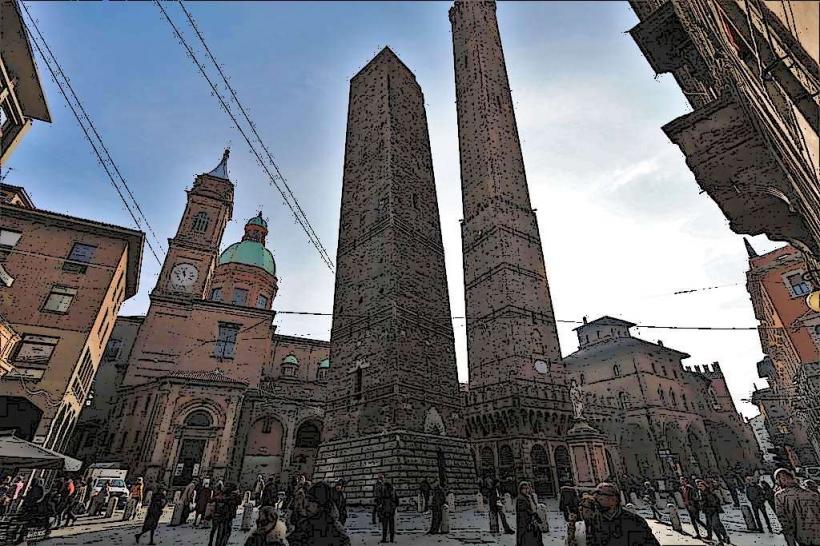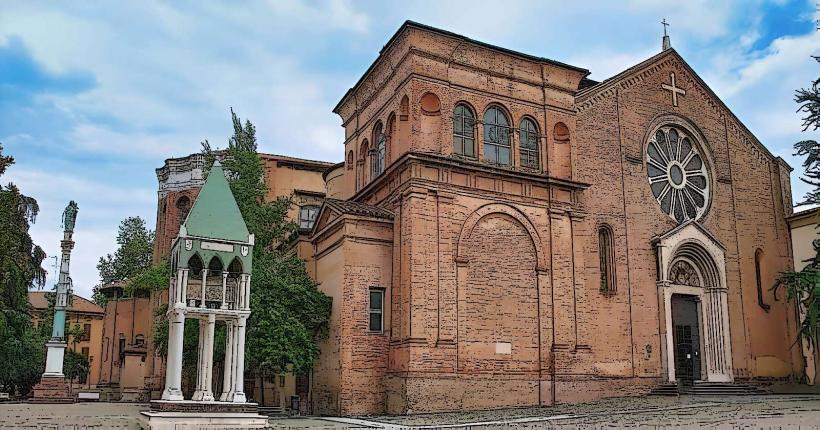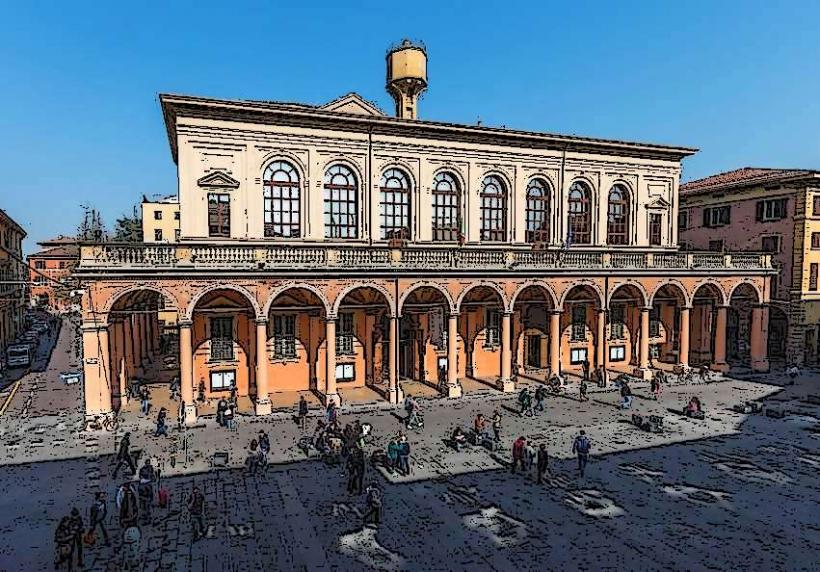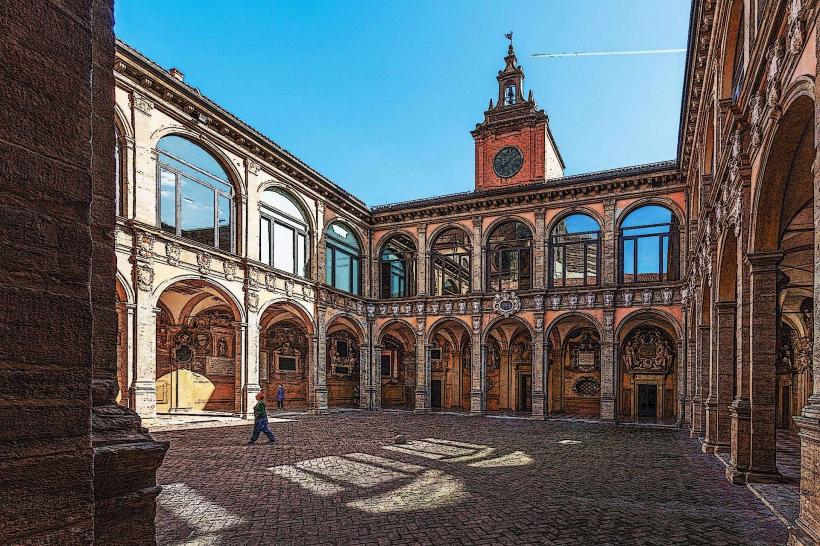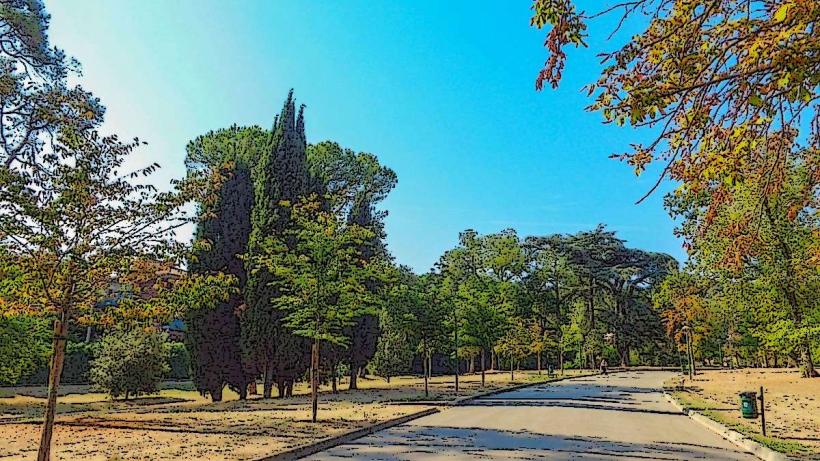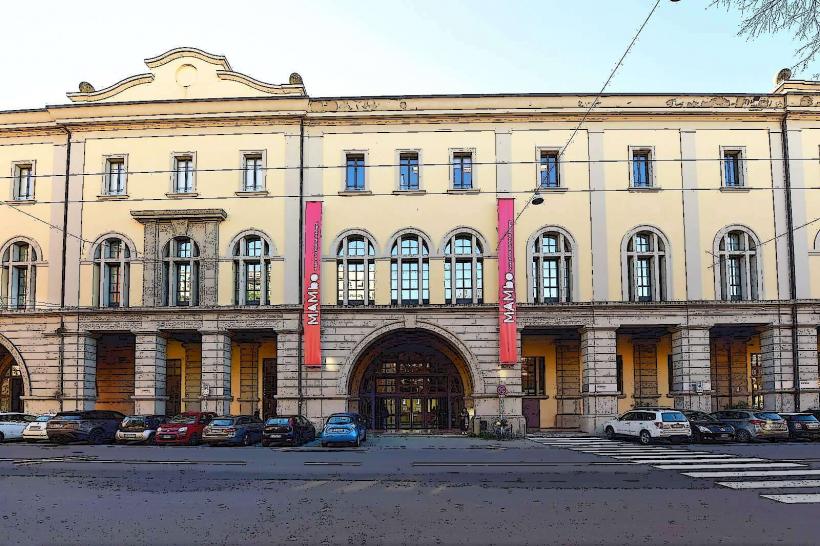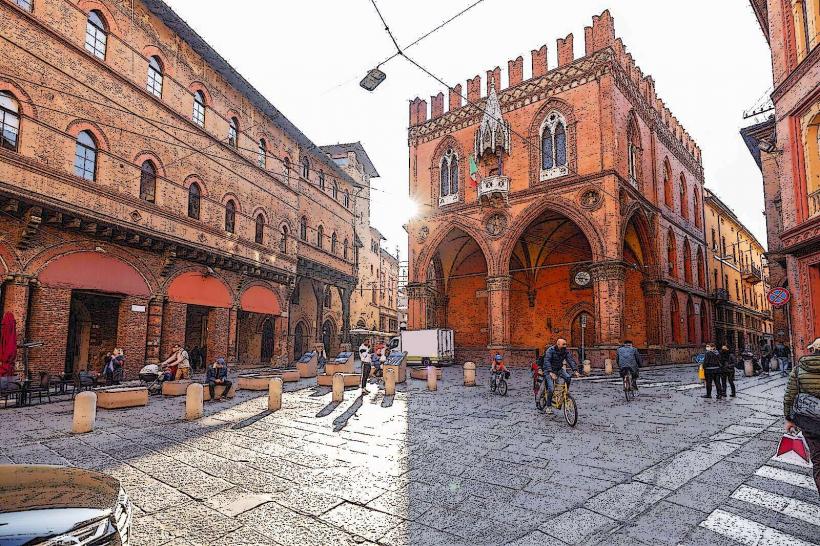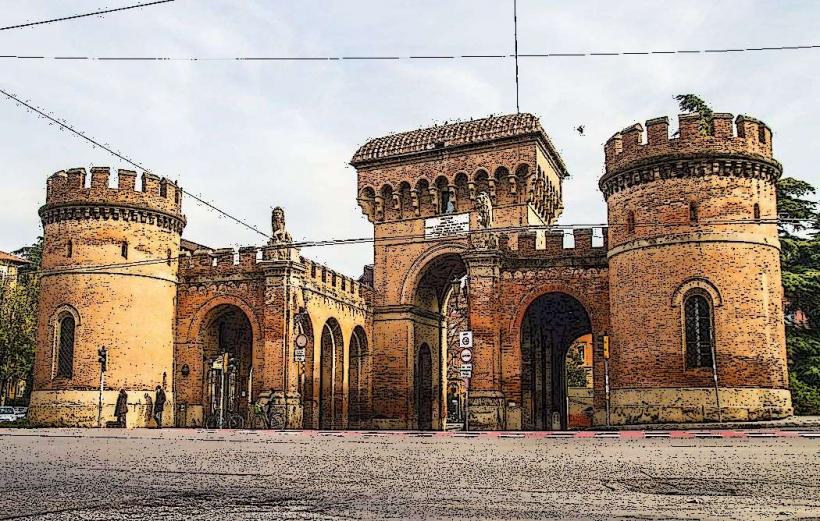Information
Landmark: Bolognas PorticoesCity: Bologna
Country: Italy
Continent: Europe
Bolognas Porticoes, Bologna, Italy, Europe
Bologna's porticoes are a network of covered walkways spanning over 62 kilometers throughout the city center and outskirts. Designated as a UNESCO World Heritage site, they serve as integrated structural elements of the city's private and public architecture.
Visual Characteristics
The porticoes exhibit various architectural styles, including medieval wooden structures, Gothic brick arches, and high Renaissance stone colonnades. Materials range from dark timber and terracotta to white Istrian stone and yellow sandstone. Heights and widths vary significantly, from narrow residential passages to the grand, vaulted ceilings of the Archiginnasio.
Location & Access Logistics
The network is distributed throughout the historic center and extends to the San Luca hilltop. Major sections are found on Via dell'Indipendenza, Via Saragozza, and Via Zamboni. From Bologna Centrale station, the first porticoes are immediately accessible. The city is a Limited Traffic Zone (ZTL), making the porticoes primarily pedestrian routes; the nearest major parking is at Piazza VIII Agosto.
Historical & Ecological Origin
The porticoes originated in the 11th century as "sporti" or wooden extensions to increase residential space for the growing university population. In 1288, a city ordinance mandated that all new houses include a portico at least seven feet high to allow for horse passage. Construction utilized local Po Valley clay for bricks and timber from the nearby Apennine forests.
Key Highlights & Activities
Walking the 3.8-kilometer continuous portico from Porta Saragozza to the Sanctuary of the Madonna di San Luca is a primary activity. Visitors can also view the rare 13th-century wooden portico of Casa Isolani on Strada Maggiore. The walkways provide a sheltered environment for shopping, dining, and navigating the city without exposure to weather.
Infrastructure & Amenities
The porticoes provide 24-hour public access and continuous shade and rain protection. Benches are located in modern sections, while historic areas are integrated with shops and cafes. 5G cellular signal is consistent throughout the urban network. Public restrooms are available in major municipal buildings like the Sala Borsa along the route.
Best Time to Visit
The porticoes are functional in all weather conditions, though the Portico di San Luca is best walked during the spring (April–May) or autumn (September–October) to avoid summer heat. Night photography is optimal due to the dramatic shadows created by the streetlights against the arches.
Facts & Legends
The Portico di San Luca consists of exactly 666 arches, a number traditionally associated with the devil, symbolizing the serpent crushed by the Madonna at the summit. A specific tip: look for the original 13th-century wooden beams at Via Marsala 13, which are some of the oldest surviving examples of early university housing architecture.
Nearby Landmarks
Piazza Maggiore: 0.1km (Central Point)
Two Towers (Le Due Torri): 0.3km East
Sanctuary of the Madonna di San Luca: 4.0km Southwest
Archiginnasio of Bologna: 0.2km South
Basilica of San Petronio: 0.1km South

